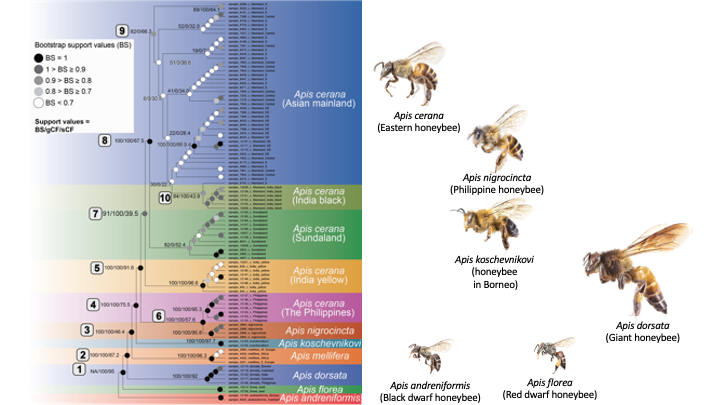an excerpt from Dr. Yong-Chao Su’s article
The mainstream of our research is to test evolutionary hypotheses using genomic and bioinformatic methods with intensively integrating the theories in population genetics, behavioral ecology, and field ecology. In moving to genomic era, we have integrated the research approaches in genomics, bioinformatics, and machine-learning. Our earlier research focused on the social behavior and the evolution of spiders. We have established the genomic and bioinformatic facilities in the Department of Biomedical Science and Environmental Biology, KMU. The genomic research results have been presented at local and international conferences, invited conferences talks, and have resulted in several main publications.
While the research and collaboration at KMU has been fruitful, we are focusing on the method development and application of evolutionary genomics research and have been collaborating with international researchers. Specifically, island biogeography of SE Asia is an important field for me. It is simply because the SE Asian Islands are biodiversity hotspots yet the biodiversity in the region is quickly declining. The understanding of the genetic, geographic, species diversities in SE Asian Islands is not merely the personal research interest but also is of the importance of documenting and monitoring the changes of the biodiversity in this region. Since 2005, we have been conducting fieldwork and biogeographic research in the Philippines, Malaysia, Singapore, and Thailand with research teams from the USA, the Philippines, Singapore, and Thailand. We are leading several collaborative research projects using spiders, honeybees, and amphibian to study the biogeography of the Southeast Asian Islands. In summarizing our research achievements: (1) our research focused on testing conceptually intriguing, general-interest evolutionary hypotheses. And we have established enough team members, materials, and background information for our future long-term research. (2) We conducted empirical studies in phylogenetics, molecular ecology, behavioral ecology, and biogeography using up-to-date genomic methods. (3) We have the experiences in leading internationally collaborated research projects and have worked independently collaborate closely with different research groups in several countries. (4) We published our recent research results in high-ranking journals in our field.
Dr. Yong-Chao Su
Department of Biomedical Science and Environmental Biology
Reference:
1.Frontiers in Ecology and Evolution.:526
2.Systematic biology. 2021 Nov;70(6):1110-22.
Full-text articles:
1. https://www.frontiersin.org/articles/10.3389/fevo.2022.813777/full
2. https://doi.org/10.1093/sysbio/syaa098
